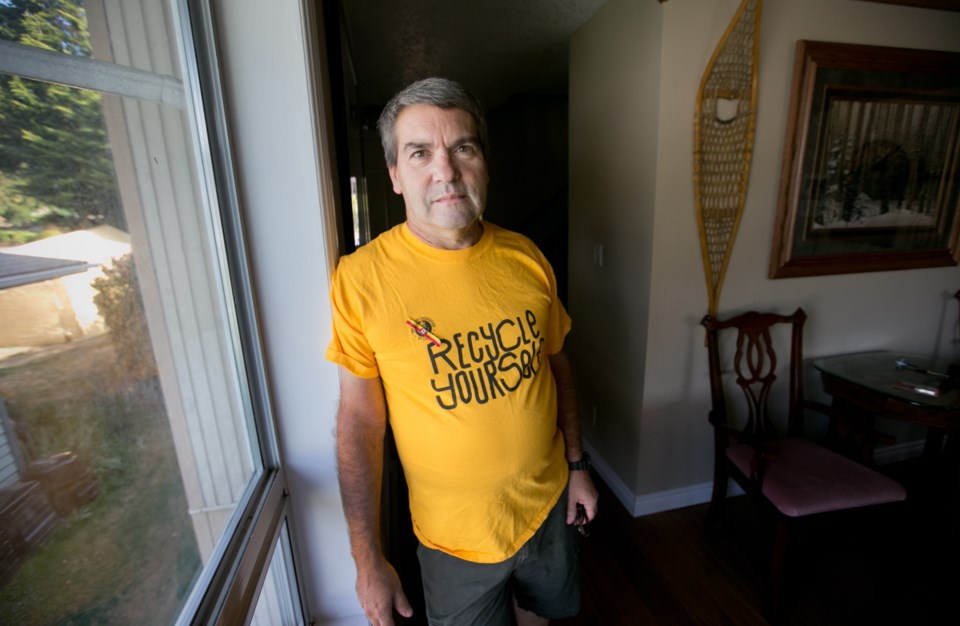A liver transplant saved Stephen Farmer’s life, and the View Royal man has his mother to thank.
Farmer, 55, contracted hepatitis C several years ago, possibly in his late teens, from an unknown source. When the disease had destroyed his liver, he was approved for a transplant in 2005 at Vancouver General Hospital.
However, one of the requirements he had to fulfil as a patient was a guarantee of assistance for up to three months as he recovered in Vancouver after being discharged from hospital.
“One of the stipulations is you need to have somebody care for you after the transplant,” Farmer said in an interview.
“And they want you to stay in Vancouver for up to three months. Trying to find somebody to stay there with you for that long is a big issue.”
In the end, his mother, then 70, agreed to help while the two stayed in a rented room close to the hospital for about two months before returning home.
But Farmer said it wasn’t easy. “Somebody like my mom can barely change a Band-Aid, and gets queasy over almost anything.”
The Hepatitis C Prevention and Education Society of B.C., or HepC BC, is calling attention to the difficulty placed on transplant patients from outside the Lower Mainland by the requirement for pre- and post-operative operative care in or near Vancouver.
The group is asking for people on the Lower Mainland to consider setting up an agency of volunteers, perhaps operated by churches or service clubs, to help care for transplant patients after they are discharged from hospital.
Cheryl Reitz, volunteer co-ordinator for HepC BC, said modern medical priorities and cost pressures are driving the necessity. It means there is always a push to get patients out of hospital quickly.
However, it can be very difficult for a newly discharged transplant patient, especially one from out-of-town.
“You can have tubes hanging out all over your body, with things needing changing and draining and all kinds of stuff,” Reitz said.
“It’s a lot of work looking after a patient like that.”
But she said the requirement for patients to vouch for available care, before and after surgery, just to qualify for a transplant has been in place for many years.
“It’s really, really bad for people up in the North,” said Reitz. “I think a lot of people just end up dying.”
Peggy John, spokeswoman for the B.C. Transplant Society, said research shows care outside the operating hospital is crucial.
“It’s evidence based,” John said. “They say not having these supports results in things like poor recovery and poorer outcomes.”
Transplant authorities and hospitals typically work with those patients from outside the Lower Mainland to see if arrangements can be made, she said.
If nothing can be arranged, however, it can mean some people are asked to postpone their eligibility for a transplant.
However, transplant patients from outside the Lower Mainland are a large proportion of the total: 40 per cent of B.C.’s liver-transplant patients don’t live in the Vancouver area, John said.
B.C. Transplant would support some system, agency or group of volunteers to assist with pre- and post-operative care, she said.
It’s recognized that people from outside the Lower Mainland have a tougher time. “It’s not without challenges, that’s for sure,” John said. “But the same can be said for all people who have to travel to the Lower Mainland for a whole variety of medical situations.
“It’s the reality of the vast province we live in.”



